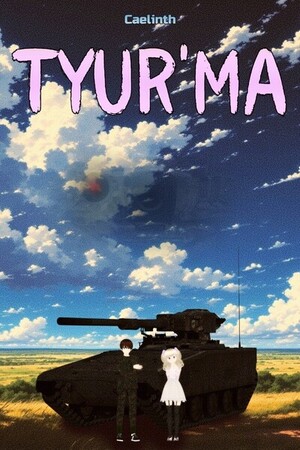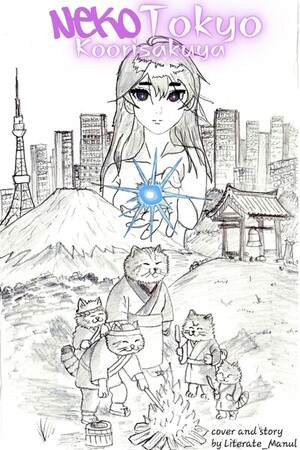Chapter 5:
The Escape Route
Immigrant Diaries
With the name "Arman Azin" echoing in my mind like a distant, unfamiliar mantra, I began to build my new life. But deep down, I knew there was no real future here for someone like me. I could hide, I could run, but there was always the risk that the past would catch up to me—especially in a city as small and crowded as Dhaka. The city that had been my prison now felt like a suffocating trap, a place where I couldn’t breathe without fear of being found.
It wasn’t just the police I had to worry about. It was everyone. Kamal had framed me, turning me into a national criminal. The news had spread far beyond the police chief’s murder; the lies had woven into my story like the threads of a spider’s web. No one would believe I was innocent, no one would care about the truth. I was Ashique no more; I was a ghost. And ghosts don’t belong in the land of the living.
I needed to leave.
But leaving Bangladesh wasn’t a simple thing. Not for a man like me with nothing but a fake identity and a pocket full of desperation.
I had no money, no resources, no allies. Every door I knocked on led to dead ends. So, I turned to the one place I’d always sworn I’d avoid—the underworld. There were whispers, rumors of men who could get you out of the country for the right price. Smugglers. The kinds of men who dealt in human lives like cattle, offering a lifeline to the desperate at a steep cost.
I had no choice. I didn’t care what price I had to pay. I just needed to get out.
I found one of them, a middle-aged man who went by the name Sayed. He looked like a man who had spent his entire life doing things that couldn’t be undone, his eyes deadened by years of dealing with those who had nowhere else to turn. He didn’t ask me questions—he didn’t need to. His business was simple: take the desperate, take their money, and get them out.
It wasn’t the first time I’d heard of smugglers, but I had never imagined I’d be desperate enough to resort to them. The more I spoke to Sayed, the more I realized how ugly this world was. There was no kindness, no sympathy. Just a constant dance with death.
“We can get you out,” Sayed said, his voice cold and indifferent. “It’s not going to be easy. You’ll have to pay—big time.”
I nodded. I didn’t care about the cost. I just wanted to disappear.
The route Sayed promised wasn’t for the faint of heart. It was a gamble, and if I played my cards wrong, it would cost me everything. He promised me a boat to Malaysia, a brief window of safety where I could find my footing. From there, he said, it was a forged visa to Europe—freedom, if I could get that far.
It sounded almost too good to be true. But I had no other choice.
The boat ride was the first part of the plan, and it was hell. The boat itself was barely seaworthy, a rusting hulk that had seen better days. It was cramped, filled with men, women, and children who all had one thing in common: they were fleeing something. Some were escaping war, others poverty, others the same kind of desperate circumstances that had pushed me to the edge.
The stench of fear and sweat filled the air as we sailed through dark, choppy waters. It felt like the whole world was pressing down on me, like the very sea was trying to swallow us whole. The smugglers who guided the boat were no better than thieves, only interested in the money we had paid. There was no mercy in their eyes. They were cold, methodical. And when the storm hit, they showed no hesitation in abandoning the passengers who couldn’t keep up.
We spent days at sea. No food, no water, nothing but the endless horizon and the desperate hope that we’d make it to shore. But even when we finally reached Malaysia, it wasn’t the end.
The real danger was just beginning.
Sayed’s promise of safety turned out to be a cruel joke. The moment we set foot on land, I realized how badly I had underestimated the dangers ahead. The smugglers were already gone, their faces hidden in the shadows. And I was alone—surrounded by a new set of problems.
I was handed off to another contact, another set of lies. A man named Abdullah, who promised me the next step of the journey: a forged visa to Europe. But as soon as I laid eyes on him, I knew something wasn’t right. Abdullah was a man who had seen too much—too much violence, too much betrayal. And something about the way he looked at me made my skin crawl.
He told me the plan. “We’ll get you to Europe. But you need to trust me.”
Trust? After everything that had happened? The lies, the betrayal, the people who had used me as a pawn in their twisted games? How could I trust anyone now?
But there was no other option. I had to trust him—or die trying.
The weeks that followed were brutal. My passport, the one I had so carefully forged, was no longer a simple tool for escape. It was a ticking time bomb, and every time I showed it to someone, I was gambling with my life. The closer I got to Europe, the more I realized how little I truly knew about the people I was trusting. Some of them were kind, others were cold, and a few were downright dangerous. But no one cared about the past. Everyone was just trying to survive, and in this world, survival meant playing the game.
As I moved from one smuggler to the next, I began to see the full picture—the underworld of human trafficking, of people using others for their own gain. It wasn’t just about money. It was about power, control. People like me—desperate, broken—were nothing more than currency.
And the more I thought about it, the more I understood. The smuggling routes were never safe. There was no escape. There was only survival.
I wasn’t just running from the police anymore. I was running from the world itself.
As I boarded the final plane that would take me out of Malaysia, I had no illusions left. The man I had been—Ashique—was gone, erased from existence. And in his place stood Arman Azin, a man without a name, without a past.
But for all the lies, for all the betrayal, I had one thing left: hope.
And maybe that was enough to keep me going.




Please sign in to leave a comment.